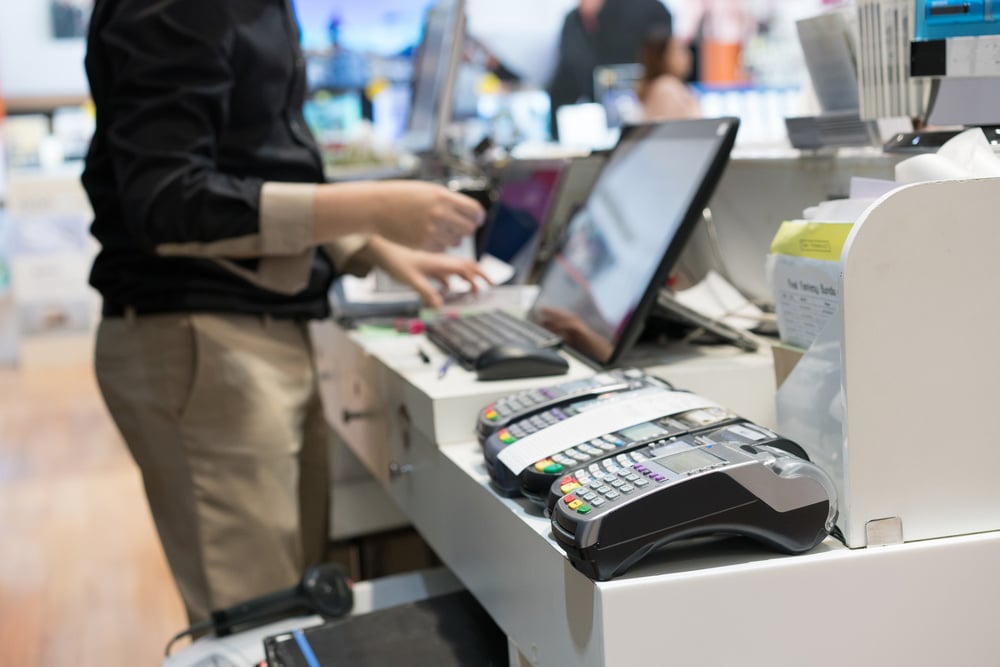
Electronic Funds Transfer at Point of Sale (EFTPOS) has revolutionized the way businesses accept payments. It’s fast, efficient and secure. However, with the growing incidences of cybercrime, it’s essential for businesses to take security measures seriously to protect their customers’ sensitive data. This blog will discuss the security measures in EFTPOS terminals, including what EFTPOS security is, security features to look for in an EFTPOS system and the functions of EFTPOS terminals.
What is EFTPOS Security?
EFTPOS security refers to the measures put in place to protect the sensitive data that passes through EFTPOS terminals during transactions. These security measures are necessary to prevent unauthorised access to customer data, including their credit card numbers, personal identification numbers (PINs) and other sensitive information.
Security Features to Look for in an EFTPOS System
When choosing an EFTPOS system, it’s essential to consider its security features. Here are some of the security features to look for in an EFTPOS system:
1. Authentication Processes
An EFTPOS system should have multiple layers of authentication to ensure that only authorized personnel can access it. Some of the authentication processes that EFTPOS systems use include passwords, PINs, and biometric identification.
2. Access Control Measures
Access control measures are designed to prevent unauthorized access to the EFTPOS system. These measures include user ID and password combinations, two-factor authentication, and access control lists.
3. Data Encryption
Data encryption is a crucial security feature in an EFTPOS system. It ensures that any data that passes through the EFTPOS terminal is encrypted and unreadable to anyone who intercepts it. Encryption makes it difficult for hackers to steal sensitive information during transactions.
4. Network Security
EFTPOS systems should be secured against network vulnerabilities, such as hacking attempts, malware, and other threats. Network security features should include intrusion detection and prevention, firewalls, and security policies that address risks associated with remote access.
5. Firewalls
Firewalls are designed to prevent unauthorised access to a network. They work by blocking incoming and outgoing traffic that does not meet specified security criteria.
6. Intrusion Detection/Prevention Systems
Intrusion detection and prevention systems are designed to identify and prevent unauthorised access to an EFTPOS system. They work by monitoring network traffic for suspicious activity and alerting system administrators when a security breach is detected.
7. Monitoring and Logging
Monitoring and logging are essential features of EFTPOS systems. They allow administrators to track user activity, identify security breaches and troubleshoot issues. These logs can be used to investigate and prosecute unauthorized access or data breaches.
8. Payment Card Industry Compliance
Payment Card Industry (PCI) compliance is a set of standards that businesses must adhere to when handling credit card transactions. An EFTPOS system must be PCI compliant to ensure that sensitive data is protected during transactions.
9. Physical Security
Physical security measures are designed to prevent unauthorized access to the EFTPOS terminal itself. This includes locking cabinets and secure mounting to prevent theft, as well as tamper-evident labels to indicate if the terminal has been opened.
10. Remote Access Security
This is critical for businesses that allow their EFTPOS terminals to be accessed from remote locations. Remote access security should include two-factor authentication, encryption and access control measures.
11. Backup and Disaster Recovery
Finally, an EFTPOS system should have a backup and disaster recovery plan in place to protect against data loss and ensure business continuity in the event of a security breach or system failure.
What are the Functions of EFTPOS Terminal?
An EFTPOS terminal is a device that is used to process electronic payments made by customers using debit or credit cards. The primary function of an EFTPOS terminal is to facilitate secure and efficient electronic transactions for merchants and customers. Here are some additional functions of EFTPOS terminals:
- Payment acceptance: The primary function of an EFTPOS terminal is to accept payments from customers. This includes debit and credit card payments, as well as contactless payments using technologies such as NFC.
- Transaction processing: EFTPOS terminals are responsible for processing electronic transactions in real-time. The terminal communicates with the payment gateway, which verifies the card details and ensures there are sufficient funds available for the transaction.
- Receipt printing: After a transaction is completed, an EFTPOS terminal will typically print out a receipt for the customer. This provides a record of the transaction and can be used for accounting and reconciliation purposes.
- Refunds and returns: EFTPOS terminals can be used to process refunds and returns for customers. This involves reversing the original transaction and issuing a credit to the customer’s account.
- Sales reporting: EFTPOS terminals can generate reports that provide insights into sales trends, transaction volumes, and revenue generated over a given period. This information can be used by merchants to make informed business decisions.
- Integration with point-of-sale systems: Many EFTPOS terminals can be integrated with a merchant’s point-of-sale (POS) system. This enables seamless transactions and reduces the likelihood of errors or discrepancies.
- Multicurrency support: Some EFTPOS terminals support multiple currencies, which is particularly useful for merchants that conduct business internationally.
Overall, an EFTPOS terminal is a critical component of any modern business that accepts electronic payments. It provides a fast, reliable, and secure
Need a Safe EFTPOS Terminal?
At Venue Smart, we pride ourselves on offering safe, low-cost EFTPOS terminals for small businesses. We implement comprehensive fraud and security protection for both your business and your customers. Rest assured, we can tailor our services to meet the needs of your company. Call us on 1300 483 683.


